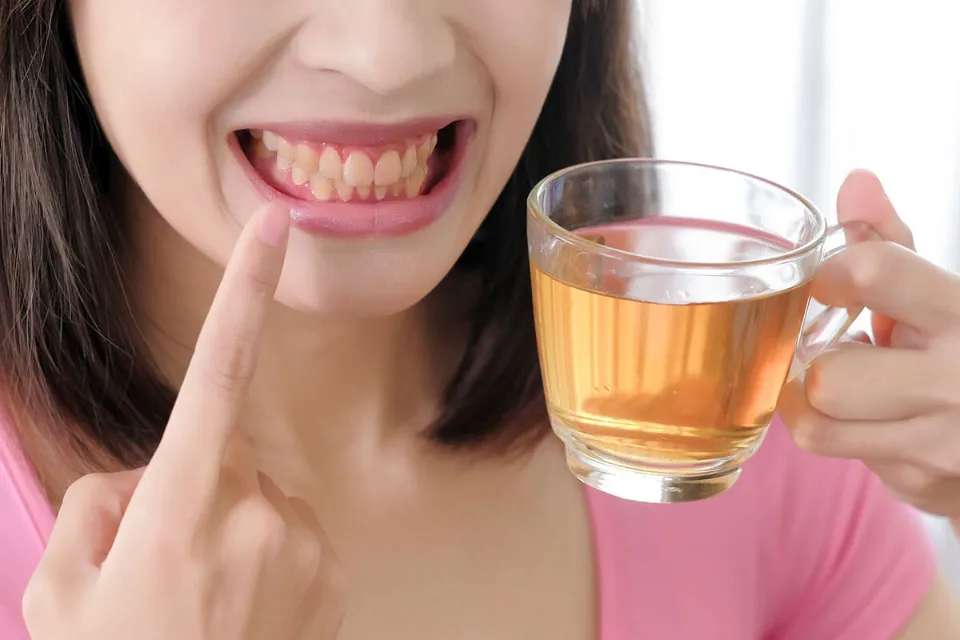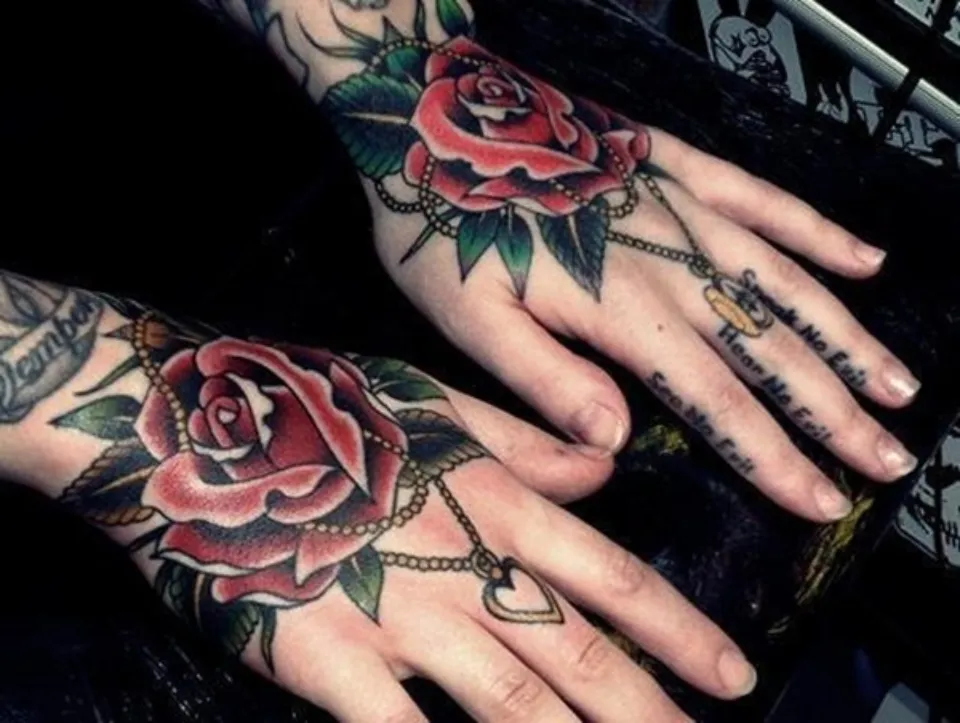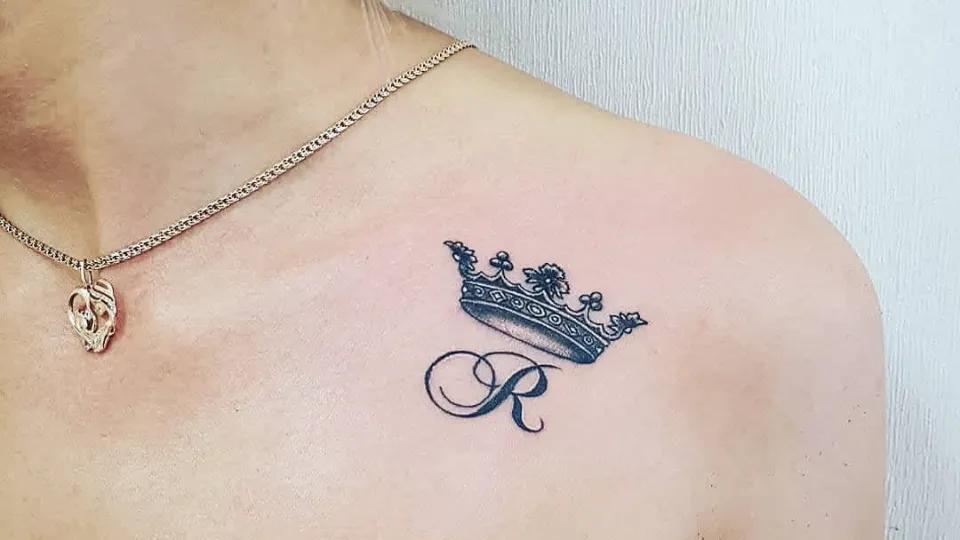Most people are aware that coffee is a major cause of tooth discoloration. But does tea stain your teeth?
In fact, black tea might be more likely than coffee to stain your teeth, due to its high tannin content.
Typically, the darker the tea color, the more likely it is to stain your teeth.
In this article, we’ll discuss the reasons why tea stains your teeth. Also, we will cover which teas are the worst for your teeth.
Does Tea Stain Your Teeth?
Yes, drinking tea stains your teeth by leaving a compound behind, tannins.
We are all aware that the majority of the foods and beverages we consume have the capacity to alter the color of our sparkling white teeth into a yellowish or darker shade.
Chromogens—dying agents also known as chromogens—are typically the primary cause of this color change. However, they are tannins in the case of tea.
Related Reading: Does White Wine Stain Teeth?
Why Does Tea Stain Your Teeth?
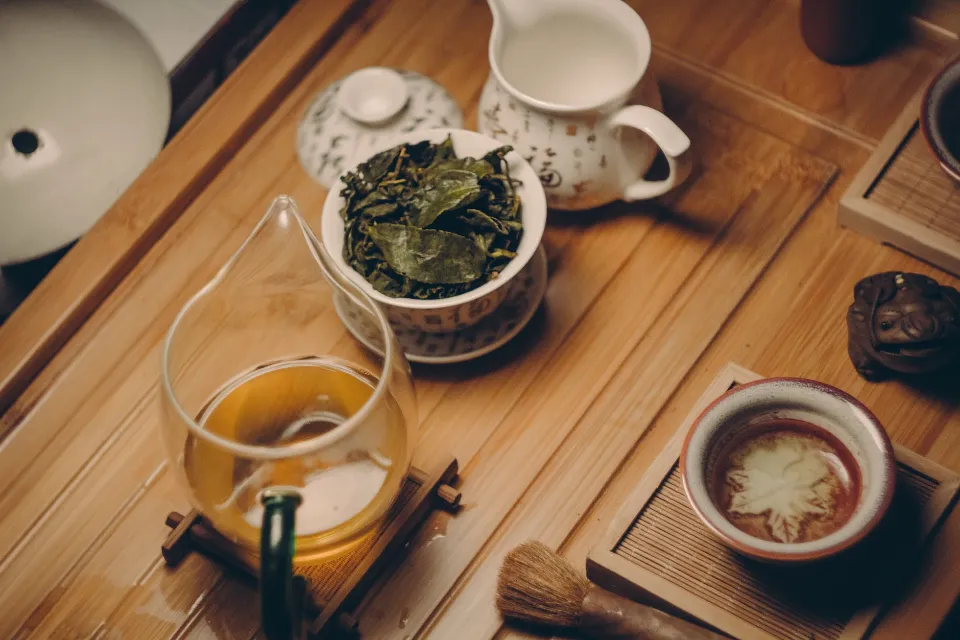
This is due to the staining components theaflavins, thearubigins, and theabrownins, which may all be present in a typical cup of tea. And the ability of these tea ingredients to stain your teeth increases with the strength of the tea.
Tea contains high levels of tannins, which can stain teeth by causing plaque to build up on them and turning them yellow.
Types of Teas That Stain Teeth the Most
Both black and fruit teas might harm your teeth’ color and condition. Teeth enamel may absorb tannins from your tea because it is porous by nature. Brown discoloration could result, which would be ugly.
Black Tea
The health benefits of black tea are numerous. Black tea has antioxidant properties, and there are indications that it may improve heart health, lower blood pressure, and regulate blood sugar.
Black tea is known to stain teeth more than other types of tea due to its high tannin content. Black tea may significantly speed up staining, which happens to our teeth naturally over time.
Black tea differs from green and white teas in taste and appearance due to the oxidation process, which also gives it its distinctive color and flavor.
Green Tea
As opposed to black tea, green tea does not stain teeth as much. It is still a major contributor to tooth discoloration when consumed frequently.
White Tea
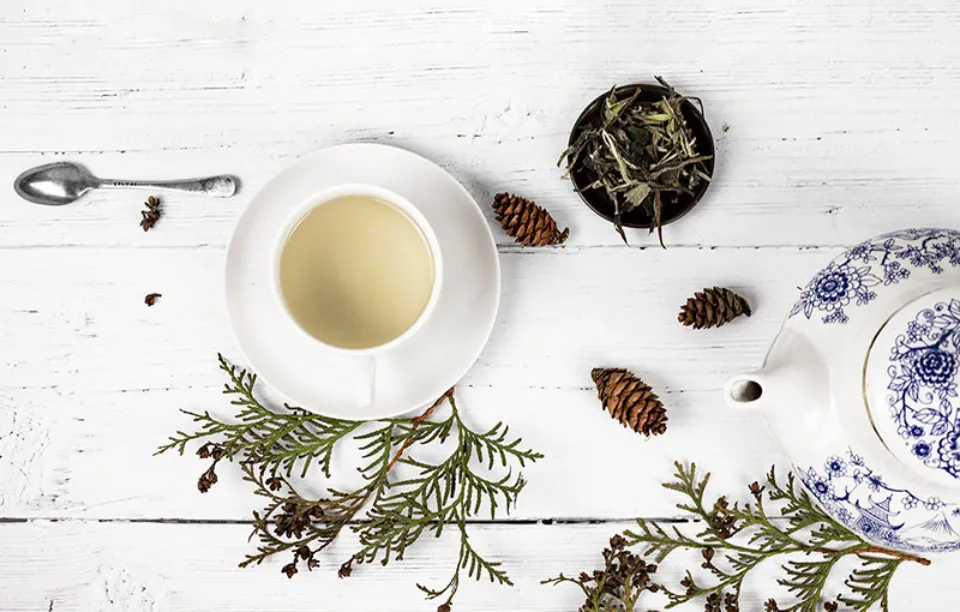
In spite of their extraordinary health advantages, black and green teas are notorious for staining teeth.
White tea is an excellent substitute for tea lovers who want to enjoy the taste of tea without the stains. White tea has a lighter color and lacks the substances that cause stains.
Contrary to popular belief, food doesn’t necessarily lack flavor just because it is light in color. The same plant is used to produce white, black, and green tea.
Herbal Tea
The type of herbal tea drunk has a major impact on how easily it stains teeth. Because most herbal teas are “tisanes” rather than real tea varieties, they do not discolor teeth.
However, the likelihood that a tisane will stain teeth increases with its acid and tannin content as well as its brew strength.
Peppermint Tea
The stimulating flavor of peppermint tea makes it a popular choice, especially in the winter when it creates a cozy and welcoming atmosphere.
People might be surprised to learn that peppermint tea is a great choice for tea because it won’t likely stain teeth. When you consume it in large quantities, it might only result in minor stains.
Compared to other liquids like coffee, black tea, or red wine, peppermint tea is significantly less likely to produce visible stains.
How to Remove Tea Stains?
Now that you’re aware that tea can stain your teeth, you might want to think about a teeth-whitening process to combat discoloration.
Using a toothpaste that whitens teeth is the easiest method. Some products can lighten your teeth up to three shades. And within a week, results may start to appear.
A mouthwash that whitens teeth is an additional simple solution. To reach those difficult-to-reach areas where a toothbrush can’t, simply swish it around in your mouth after brushing.
You can also supplement your usual brushing routine with an at-home teeth whitening kit. There are many different product categories available, such as strips, gels, LED lights, and even a whitening pen.
Related Reading:
How to Prevent Tea Stains on Teeth?
For some people, switching to a different tea or giving up tea and coffee altogether might be difficult.
Fortunately, this does not mean that you will have stained teeth for the rest of your life. There are still a number of ways to remove tea stains from your teeth even if they are still present.
You may take the following steps to prevent and get rid of tea stains on your teeth:
- After consuming black tea, immediately swish water or mouthwash around in your mouth. The main goal is to get rid of any leftover, dark liquid that might be lodged between the teeth.
- Don’t drink too much tea. If you regularly drink black tea, you will see more noticeable stains. Reduce your intake of black tea as the simplest way to reduce staining.
- Drink different teas. Black tea stains more than green, white, and peppermint teas do. If you are concerned about stains, however, avoid drinking turmeric tea.
- Regular brushing and flossing. Brushing and flossing your teeth should be done at least twice daily, in the morning and at night. It’s also a good idea to brush and floss after consuming a dark-colored beverage.
- More abrasive foods should be consumed. Foods that are crunchy or abrasive may help to remove tannins. Include abrasive foods in your diet, such as apples, cucumbers, carrots, celery, radishes, and rice crackers.
- Make use of a straw. Another choice is to sip black tea through a straw. This will stop the tannins from coming into contact with the front of the tooth, preventing surface discoloration.
- Fill your tea with milk. Adding milk does not lessen the amount of tannins in a beverage that is dark in color. On the other hand, since calcium may help to strengthen tooth enamel, it may lessen the likelihood that tannins will adhere to your teeth.
Conclusion: Does Tea Stain Your Teeth
Because of its high acidity and tannin content, tea is a major source of tooth stains, in addition to other caffeinated beverages like coffee and soda.
Switching to a different variety of tea, such as peppermint tea, white tea, rooibos tea, or yerba mate, may help you avoid staining your teeth.
Both preventing stained teeth and removing them are simple tasks. Teeth stains can be avoided by simply switching to tooth-friendly teas, consuming less tea, or cleaning and brushing your teeth right away after drinking tea.
FAQs
Are Tea Stains on Teeth Permanent?
Coffee and tea stains don’t have to be permanent and are frequently able to be eliminated with one or more professional dental procedures.
Does Tea Stain Your Teeth More Than Coffee?
It appears that tea stains your teeth more than coffee does.
Does Green Tea Stain Your Teeth?
Yes, green tea leaves a dull gray stain on teeth.

